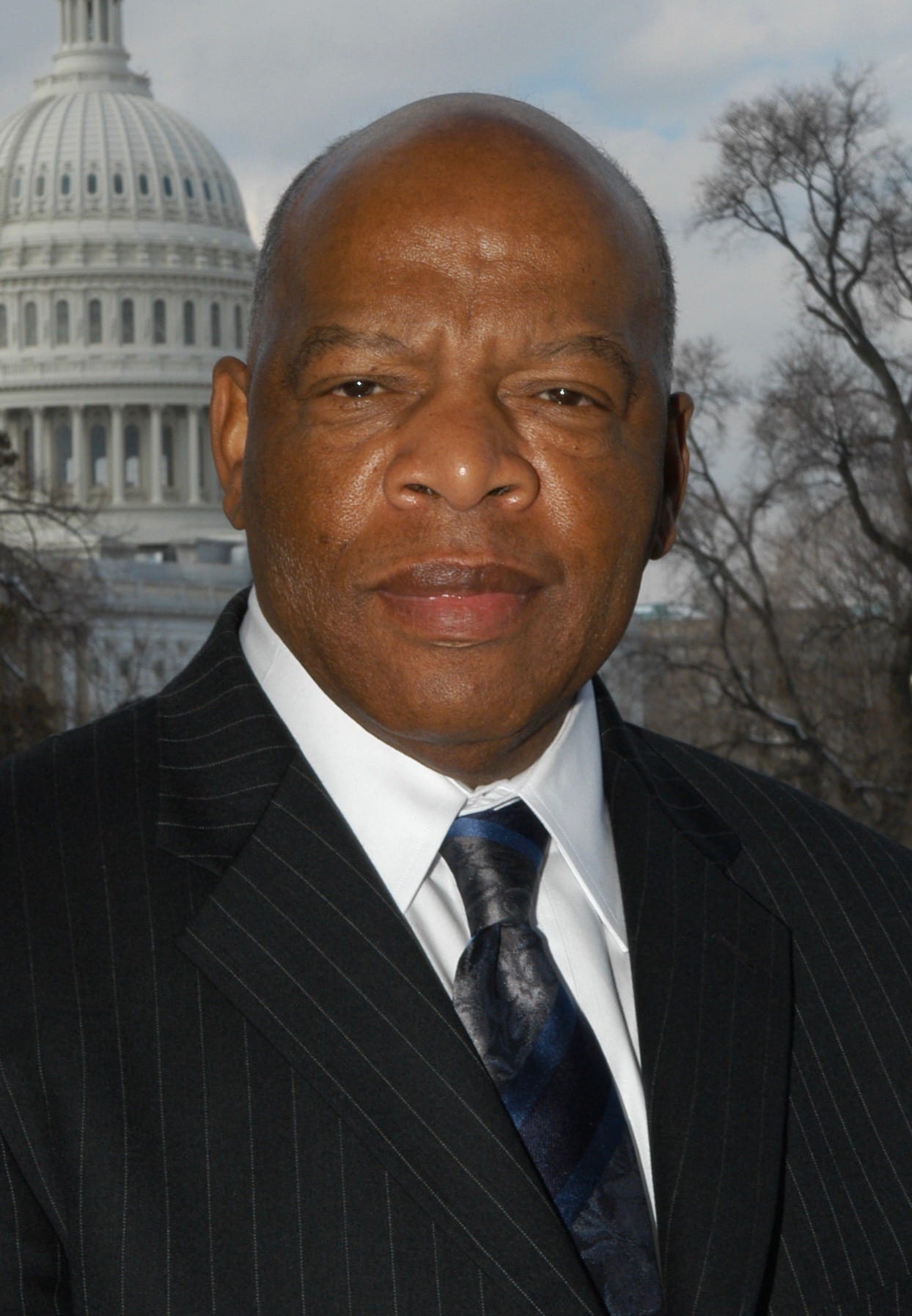U.S. Rep. John Lewis (D-Georgia), an acclaimed civil rights leader/activist and a champion of the U.S. Maritime industry, died July 17 at age 80.

Congressman Lewis
The son of sharecroppers and an apostle of nonviolence, the late congressman on Dec. 29, 2019 announced that he had Stage 4 Pancreatic Cancer and vowed to fight it with the same passion with which he had battled racial injustice. “I have been in some kind of fight – for freedom, equality, basic human rights – for nearly my entire life,” he said.
SIU Executive Vice President Augie Tellez, during the union’s August membership meeting at the SIU-affiliated Paul Hall Center for Maritime Training and Education in Piney Point, Maryland, reminded the audience that in addition to being a stalwart for workers’ rights, Lewis also consistently backed the U.S. Merchant Marine.
“He was a man with a capital ‘m’ and he was in our corner from day one,” Tellez stated. Bolstering Tellez’s sentiments regarding Lewis’ contributions to the U.S. Maritime industry was SIU Senior Political Consultant Terry Turner. “He (Congressman Lewis) was a 100% pro-vote on all Maritime Security Program, Jones Act, and Cargo Preference legislation that we tracked over the last 20 years,” Turner said. “Going forward, his leadership and support for maritime issues will be greatly missed.”
The late congressman’s backing of U.S. Maritime and advocacy for human rights did not go unnoticed in America’s civilian community nor in U.S. government circles including the Department of Defense. Secretary of the Navy Ray Mabus, during a January 6, 2016 ship-naming ceremony at the Cannon House Office Building in Washington, D.C., announced that the first ship of the next generation of fleet replenishment oilers (T-AO 205) would be named the USNS John Lewis after the civil rights movement hero.
“As the first of its class, the future USNS John Lewis will play a vital role in the mission of our Navy and Marine Corps while also forging a new path in fleet replenishment,” said Mabus at the event. “Naming this ship after John Lewis is a fitting tribute to a man who has, from his youth, been at the forefront of progressive social and human rights movements in the U.S., directly shaping both the past and future of our nation.”
The new vessel, one of six new T-AO 205 fleet oilers for the U.S. Navy, is being built by the General Dynamics National Steel and Shipbuilding Company in San Diego, California. Construction commenced in 2018; the vessel is expected to be delivered later this year. The future USNS John Lewis will be operated by the U.S. Military Sealift Command and provide underway replenishment of fuel and stores to U.S. Navy ships at sea and jet fuel for aircraft assigned to aircraft carriers. Its crew will include CIVMARS from the SIU Government Services Division.
“T-AO 205 will, for decades to come, serve as a visible symbol of the freedoms Representative Lewis holds dear, and his example will live on in the steel of that ship and in all those who will serve aboard her,” said Mabus.
The late congressman’s involvement in the civil rights movement started while he was still a young man, when he organized sit-in demonstrations at segregated lunch counters in Nashville, Tennessee. In 1961, he participated in the “Freedom Rides,” challenging segregation at interstate bus terminals across the South. In 1963, Lewis was named chairman of the Student Nonviolent Coordinating Committee where he was responsible for organizing student activism challenging segregation.
Congressman Lewis was also a keynote speaker at the historic March on Washington in 1963. He nearly lost his life more than 50 years ago on “Bloody Sunday” (March 7, 1965) when he was beaten by police on the Edmund Pettus Bridge while attempting to lead more than 600 peaceful voting rights protestors in Selma, Alabama.
###





Comments are closed.